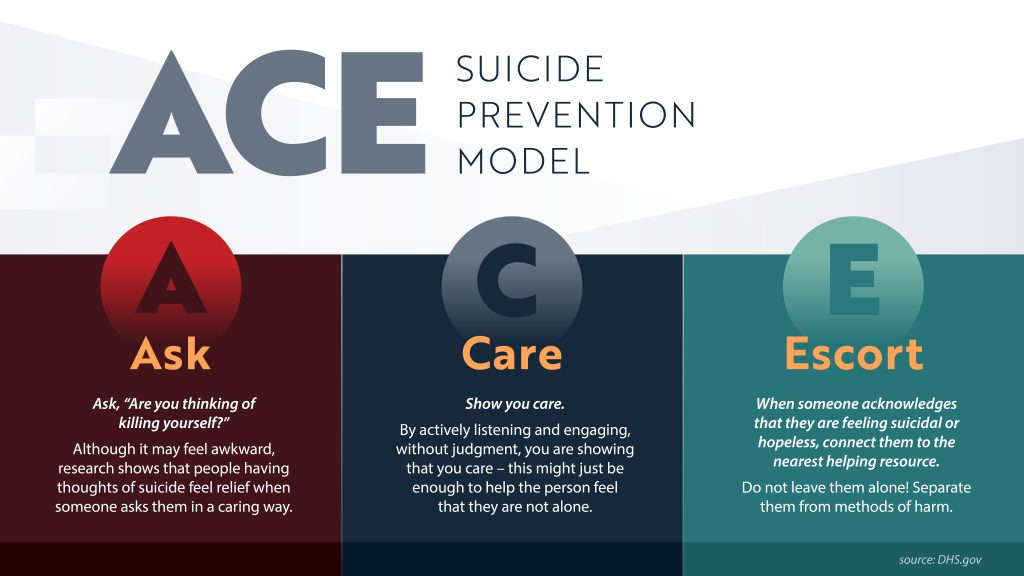September is Suicide Prevention Awareness Month and a powerful reminder that we all play a crucial role in fostering supportive communities that prioritize mental health. Whether it’s within our families, friendships, workplaces, or other social circles, building an environment of empathy and understanding can make a significant difference in someone’s life.
Various communities have the potential to be sources of strength and comfort. Here are some examples of different supportive communities and how we can offer support within each one:
1. Family:
Families can be a primary source of emotional support. If you notice signs of distress or potential suicidal thoughts in a family member, engage in open communication, and encourage them to seek professional help. Remember that listening without judgment and showing unconditional love can provide immense comfort during challenging times.
2. Friends:
Friends can be lifelines during difficult periods. Check on your friends regularly, and if someone seems distant or down, don’t be afraid to ask if they are thinking about suicide. Let them know you care and are there to listen without offering unsolicited advice. Encourage them to reach out to mental health professionals if necessary. For more information about how to communicate with someone who may be suicidal, check out this 5-step communication guide.
3. Workplace:
Employers and coworkers can contribute to a positive and supportive atmosphere by promoting mental health initiatives, offering Employee Assistance Programs (EAPs), and conducting mental health awareness training. If you notice a colleague struggling, express concern, and provide information about available resources, including their Assistance Program.
4. Educational Institutions:
Students, educators, schools, and universities can create an environment that prioritizes mental health. Teachers and faculty members can undergo training to recognize signs of distress in students and offer appropriate support or referrals. Students should be encouraged to speak with counselors or trusted educators if they or their peers are facing difficulties.
5. Social and Online Communities:
Online communities, including social media groups and forums, can serve as vital support networks. However, it’s important to maintain a safe and positive environment by refraining from judgment or harmful discussions. Encourage open conversations about mental health, and direct individuals to reliable resources.
Recognize the Signs and Taking Action
Identifying warning signs of suicidal thoughts is critical to providing timely help and support. Take the initiative to act if you notice any of the following signs in someone:
- Expressing feelings of hopelessness or purposelessness
- Withdrawing from friends, family, and activities they once enjoyed
- Sudden mood swings or displaying intense emotions
- Talking about feeling like a burden to others
- Engaging in risky or self-destructive behaviors
Extending a Helping Hand
Approaching someone who may be struggling with suicidal thoughts requires sensitivity and care. Here’s how you can offer support:
- Initiate a conversation: Express your concerns openly and non-judgmentally. You are there to listen and support them.
- Validate their feelings: Acknowledge their emotions and let them know that it is okay to feel overwhelmed.
- Encourage professional help: Suggest reaching out to a mental health professional. Offer to assist them in finding the right resources.
- Remove access to means: If possible, remove any items that could be used for self-harm.
- Stay connected: Continue to check in on them regularly and remind them that they are not alone.
Resources to Help You Support Others

Responding to Others in Distress: It can be challenging to know what to say or do when someone tells you they are stressed, having a difficult day, or struggling with their mental health. This guide provides tools and approaches for initiating conversations and responding appropriately.
Collective Trauma and Ten Tips for Coping: An overview of how collective trauma and grief can affect people’s day-to-day and 10 tips for coping.
Talking to Children and Teens about Traumatic Events: Children and youth can face emotional strains after a traumatic event or disaster. This tip sheet is designed to provide advice on how parents, caregivers, and teachers can support children and young adults in their life, following a traumatic event.
Let’s Break the Silence Together
Suicide Prevention Awareness Month serves as a powerful call to action. By building supportive communities and recognizing the signs, we can create a world where seeking mental health support is met with compassion and understanding. Remember, it only takes a simple gesture to make a difference. Together, let’s break the silence surrounding mental health challenges and extend a helping hand to those in need.
AllOne Health provides Assistance Programs for employees, students, and members. If you or someone you know is struggling with suicidal thoughts or mental health challenges, encourage them to reach out for in-the-moment support and referrals for short-term counseling by visiting Member Support.


